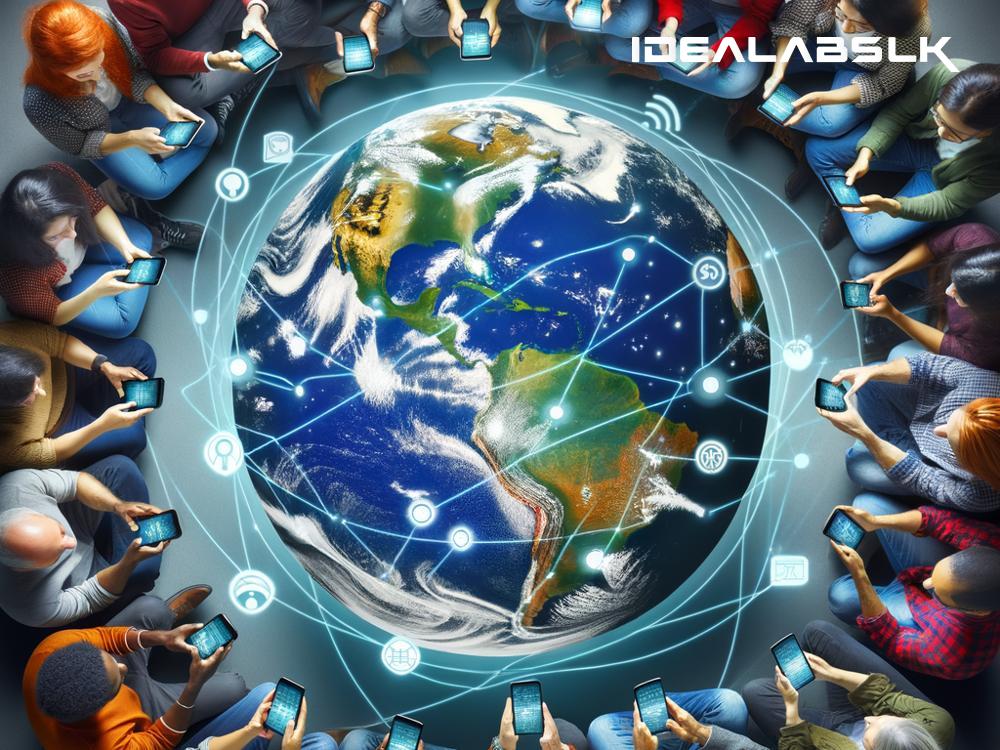The Influence of Crowdsourced Data: Shaping Our World One Click at a Time
In an era where information is as crucial as the air we breathe, crowdsourced data is the unsung hero shaping the world around us in ways we often overlook. Imagine a vast mosaic where each piece is a snippet of data provided by individuals like you and me. This imagery fittingly describes the essence of crowdsourced data—a collective effort transforming the way we understand and interact with our surroundings.
What is Crowdsourced Data?
Simply put, crowdsourced data is information gathered from the general public or a large group of individuals. It's like pooling knowledge from a diverse crowd to fill in the missing pieces of a puzzle. This collaborative effort has revolutionized various sectors, from mapping and navigation to disaster response and even the fight against diseases.
The Power of the Crowd
The true power of crowdsourced data lies in its sheer volume and diversity. When thousands, or even millions, of people contribute bits of information, it creates a rich tapestry of data that is often more accurate and up-to-date than traditional data collection methods. One iconic example is Wikipedia, the online encyclopedia. It's built entirely on contributions from volunteers around the globe, illustrating the potential of crowdsourcing to amass vast amounts of information.
From Maps to Molecules: The Wide-ranging Impact
Perhaps the most familiar example of crowdsourced data in action is GPS navigation apps like Google Maps and Waze. These apps rely on users to report traffic conditions, road closures, and even speed traps. The result? Real-time updates that help you navigate your city more efficiently than ever before.
But the influence of crowdsourced data goes beyond finding the best route to your local coffee shop. It's been a game-changer in scientific research, especially in projects like Fold.it, where gamers solve complex puzzles related to protein folding. Scientists use these solutions to advance research in genetics, diseases, and medicine—demonstrating how everyday people can contribute to groundbreaking scientific discoveries.
Moreover, in the aftermath of natural disasters, crowdsourced data has proven invaluable in coordinating emergency response efforts. Platforms like Ushahidi, initially developed to map reports of violence in Kenya, have been repurposed to track disaster impacts and aid distribution, saving lives in the process.
The Challenges and Risks
However, the journey of crowdsourced data is not all smooth sailing. Challenges include ensuring data accuracy, protecting contributor privacy, and preventing manipulation or misuse of the data. Misinformation can spread just as rapidly as valuable insights when relying on public contributions. Therefore, it's crucial to develop robust authentication and validation mechanisms to harness the true potential of crowdsourced data without being derailed by its pitfalls.
The Democratic Nature of Data
One of the most beautiful aspects of crowdsourced data is its democratic nature. It empowers ordinary people to contribute to significant projects, whether mapping their neighborhood or helping track the spread of a virus. This inclusivity not only enriches the data collected but also fosters a sense of community and shared purpose.
Looking Ahead
As technology continues to advance, the possibilities for crowdsourced data are boundless. With the rise of smartphones and other connected devices, everyone has the potential to be a data collector, contributing to vast networks of information that benefit various fields. Furthermore, innovations in data validation and artificial intelligence will help mitigate the challenges of accuracy and integrity, unlocking new frontiers for crowdsourced projects.
The Unsung Hero of Our Digital Age
In a world awash with data, the contributions of individuals to the ocean of collective knowledge are often understated. Yet, it's clear that crowdsourced data is a powerful force for good, driving innovations, advancing scientific understanding, and enhancing daily life in countless ways. By tapping into the collective intelligence of the crowd, we can tackle some of the most pressing challenges of our time.
So, the next time you report a pothole on your navigation app or contribute to a Wikipedia article, remember that you're part of a global effort to shape a better, more informed world. Crowdsourced data isn't just about collecting information; it's about empowering each of us to make a difference, one click at a time.

